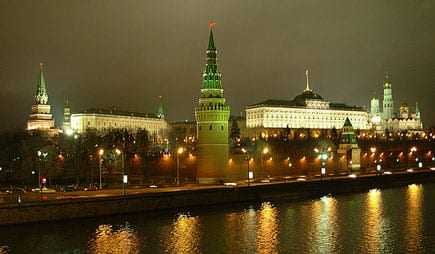
Recently, the Russian Federation became the 156th member of the World Trade Organization (WTO). The WTO’s ‘Agriculture Agreement’ specifies that “the members of the organization agree to improve market access and reduce trade-distorting subsidies,” which translates into lifting tariffs for imported goods and simplifying procedures; the import tariff for olive oil will drop to 7.8 percent from its current 10 percent. Theoretically, olive oil and other agricultural products will have better chances to enter the vast Russian market.
European Union’s (EU) trade commissioner wasted no time celebrating the event and said, “As a consequence of the WTO accession, Russia will amongst others lower its import duties, limit its export duties, grant greater market access for EU services providers and facilitate rules and procedures in many areas affecting bilateral economic relations”.
In general, a WTO accession means that the economy will become open, globalized and modernized, and furthermore that local enterprises will face serious competition from abroad on a wide range of products. In the case of olive oil, exporters based in the EU do not have to compete with any locals since olive oil is only imported and they can have a serious advantage over opponents from elsewhere: The EU is the biggest trading partner of Russia, hence there are already open channels of communication and collaboration.
In 2008, Russian olive oil imports amounted to just 18,000 tons; palm oil was top among vegetable oils with 692,000 tons, followed by coconut oil with 192,000 tons. For one thing, Russia cannot be seen as a virgin market regarding olive oil since more than 100 brands of olive oil are already available in supermarkets and deli shops. But with a population of about 140 million, and given the huge quantities of vegetable oils consumed, there is space for more olive oil if it the aim is to replace the other vegetable oils and become the consumers’ choice. And while the per capita income declined seriously in 2009 to $8,616 due to the global financial crisis, it has since then started to rapidly increase again to $13,089 in 2011, according to the World Bank. Simply put, there is more purchasing power available to Russian consumers to go after more expensive and healthier vegetable oils, like olive oil.
The simplification of processes and procedures can be the opportunity for stronger promotion of olive oil from the EU. What this simplification means is that the country must make huge leaps forward to deregulate its business environment and hopefully improve the 120th position it currently holds in the “Doing Business” index, which does not sound very promising to firms from abroad.
So, having in mind that Russia and the EU already have tight trading bonds and that the tariffs will be reduced and the procedures will be simplified and rationalized to expel the country’s rigid bureaucracy, it seems that European olive oil exporters should turn their heads east. This, of course, if they are not put off by the high degree of existent corruption.








